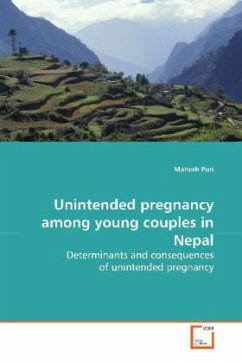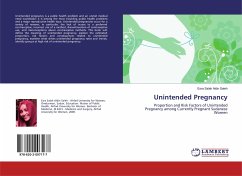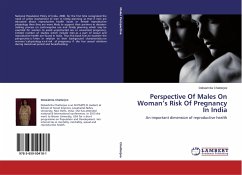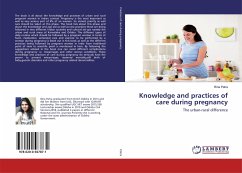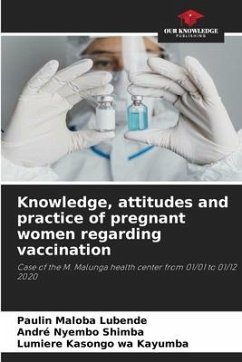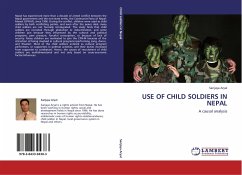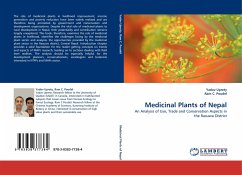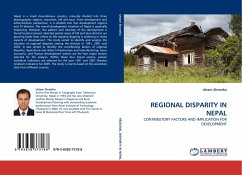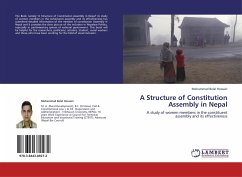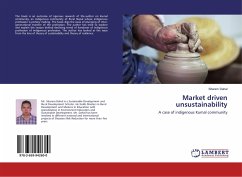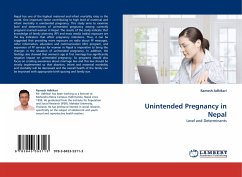
Unintended Pregnancy in Nepal
Level and Determinants
Versandkostenfrei!
Versandfertig in 6-10 Tagen
32,99 €
inkl. MwSt.

PAYBACK Punkte
16 °P sammeln!
Nepal has one of the highest maternal and infant mortality rates in the world. One important factor contributing to high level of maternal and infant mortality is unintended pregnancy. This study aims to examine level and determinants of unintended pregnancy among currently pregnant married women in Nepal. The results of the study indicate that knowledge of family planning (FP) and mass media (radio) exposure are the key indicators that affect pregnancy intentions. Thus, it can be suggested that providing more exposure on radio about FP messages, other information, education and communication ...
Nepal has one of the highest maternal and infant mortality rates in the world. One important factor contributing to high level of maternal and infant mortality is unintended pregnancy. This study aims to examine level and determinants of unintended pregnancy among currently pregnant married women in Nepal. The results of the study indicate that knowledge of family planning (FP) and mass media (radio) exposure are the key indicators that affect pregnancy intentions. Thus, it can be suggested that providing more exposure on radio about FP messages, other information, education and communication (IEC) program, and expansion of FP services for women in Nepal is imperative to bring the changes in the situation of unintended pregnancy. In addition, the findings also showed that women's age at first marriage has significantly negative impact on unintended pregnancy. So programs should also focus on creating awareness about marriage law and this law should be strictly implemented so thatabortion, infant and maternal morbidity and mortality will be decreased and the overall health of the family can be improved with appropriate birth spacing and family size.



